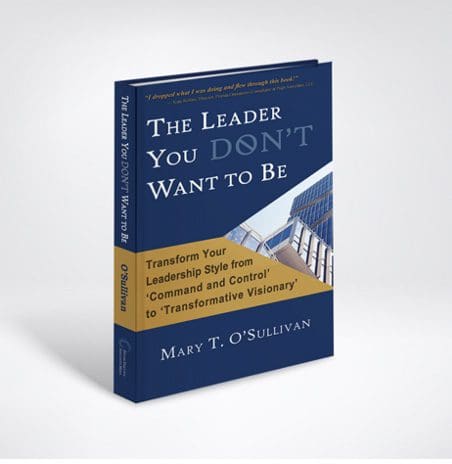Search Posts
Recent Posts
- Senior Agenda Coalition of RI pushes wealth tax to fund programs for older residents – Herb Weiss June 2, 2025
- How will Artificial Intelligence (AI) impact the future of work – Mary T. O’Sullivan June 2, 2025
- Real Estate in RI: Tiverton contemporary for $1.27M June 2, 2025
- Our Networking Pick of the Week: Coffee Hour at Provence Sur Mer, Newport June 2, 2025
- Rhode Island Weather for June 2, 2025 – Jack Donnelly June 2, 2025
Categories
Subscribe!
Thanks for subscribing! Please check your email for further instructions.

The Power of Rest – Mary T. O’Sullivan
By Mary T. O’Sullivan, MSOL
“We are enslaved by speed and have all succumbed to the same insidious virus: Fast Life.” – Carlo Petrini
When you take a roast out of the oven, the cooking instructions tell you to “let the meat rest”. A rested roast, turkey or even meatloaf tastes better when rested, because you’ve given the juices time to settle back into the meat after hours of cooking in a hot oven. There are many benefits to allowing your roasts to rest, but this piece is not about cooking. I’m sure you can see the parallels here. It’s about us, the folks that get up and out and earn a living all day, take care of family, pets, and everything else.
Maybe we’ve learned our lesson about sleep. How many of us have run on empty for years, going to bed late and rising before dawn? We’ve learned how bad lack of sleep is for our health. We also figured out that sitting for 8 hours or more each day is like smoking a pack of cigarettes a day, so we have our adjustable desks to keep the body in a movable state. So, most of us have cleaned up many of our health issues, physical that is.
There’s one area of health that has gone unaddressed for too long, our mental health. We’ve all seen those “well-being” circles, with nutrition, exercise, sleep and social support. But one slice of that pie is not a topic of conversation: that is relaxation, or rest. Recently, habits of some of the top minds in science and industry were studied, looking for that common denominator that we may want to emulate. What researchers found was that these geniuses all took time for rest and relaxation in their day.
In order to ensure that time was integrated into the day, people like Steve Jobs and Albert Einstein adhered to a routine. In his later years, Steve Jobs established an evening routine that included dining with his family, followed by a hot herbal tea and a walk. He also spent time alone, meditating or listening to music. Einstein is reported to have spent whole days just thinking and allowing his mind to wander. His apparent aimless musings, daydreams and hours of doing nothing produced the ideas that would change modern science. Bill Gates famously plays bridge every week with Warren Buffet as well as adds meditation into his day.
What makes rest and relaxation (or R&R as it’s known in the military) so critical to our well-being and healthy functioning? You won’t be surprised to know that the mere act of stepping away from your stressful lifestyle lowers blood pressure, reduces heart rate and allows blood to flow more freely around our bodies, including to our brains. We actually gain more mental and physical energy from rest, and a feeling of calm comes over us. A more calm and clearer mind propels us into a more positive mindset, and manifests clearer thinking, better concentration, memory and decision making. Relaxation relieves tension, helps with digestion and aids in absorbing vital nutrients more efficiently, helping to fight off disease and infection.
Here are some tips to help you rest your body and mind during the day:
- Focus on breathing. Make sure breaths are even and rhythmical.
- Meditate. This can be done in your car if you can’t find a quiet space.
- Visualize. Much like professional athletes do when they imagine themselves making a great shot or catching that ball. Focus on your environment in your quiet place.
- Take a walk outside in nature. Notice your surroundings, enjoy the sun on your face, the trees, grasses and animals. Don’t think about work during this “alone” time.
In her best-selling book, Do Nothing, Celeste Headlee makes the point that we need this all-important downtime in order to break the cycle of “working more instead of less, living harder, not smarter, and becoming lonelier and more anxious.” The book emphasizes our need to break away from pure efficiency and focus on meaning. We need to stop sabotaging our well-being in search of external solutions to an internal problem.
Let’s go back to that roast, fresh out of the oven. Do you feel cooked sometimes? The juices are still hiding inside the meat, and they need time to redistribute back through the roast. If you slice the meat too soon, your meat will be tougher and drier than if you let it rest for 15 0r 20 minutes. Let the juices settle, and you’ll have a tender, melt in your mouth, juicy roast.
Now imagine you are that roast, when will you give yourself a rest so that your energy juices can flow back around you. You’ll be more creative, productive, and feel like you can make a better contribution to your work, family and social groups. We can learn to reallocate our time so we can allow ourselves to become better human beings, with feelings of well-being and happiness instead of worry and anxiousness.
“Pushing harder isn’t helping us anymore.” – Celeste Headlee
Get my new book on Amazon.com


Mary T. O’Sullivan, Master of Science, Organizational Leadership, International Coaching Federation Professional Certified Coach, Society of Human Resource Management, “Senior Certified Professional. Graduate Certificate in Executive and Professional Career Coaching, University of Texas at Dallas.
Member, Beta Gamma Sigma, the International Honor Society.
Advanced Studies in Education from Montclair University, SUNY Oswego and Syracuse University.
Mary is also a certified Six Sigma Specialist, Contract Specialist, IPT Leader and holds a Certificate in Essentials of Human Resource Management from SHRM.
mary@encoreexecutivecoaching.com – www.encoreexecutivecoaching.com
